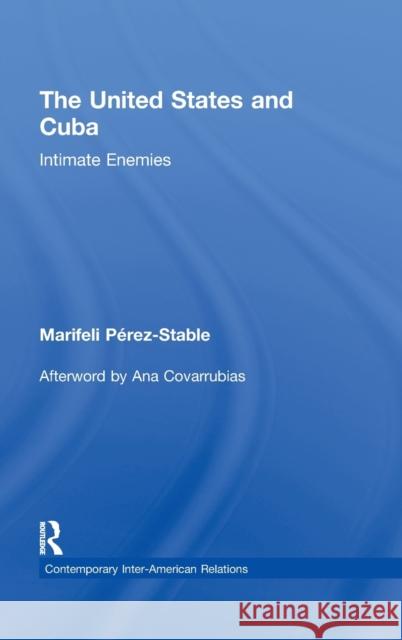The United States and Cuba: Intimate Enemies » książka
The United States and Cuba: Intimate Enemies
ISBN-13: 9780415804509 / Angielski / Twarda / 2010 / 224 str.
The United States and Cuba: Intimate Enemies
ISBN-13: 9780415804509 / Angielski / Twarda / 2010 / 224 str.
(netto: 486,78 VAT: 5%)
Najniższa cena z 30 dni: 483,79
ok. 16-18 dni roboczych.
Darmowa dostawa!
This text systematically covers the background of U.S.-Cuban relations after the Cold War and tensions into the 21st-century. The authors explore the future of this strained relationship under Obama's presidency and in a post-Castro Cuba.
A great power and a weaker, rival neighbor can eventually have normal relations. Prior to 1959, Cuba and the United States didnât have normal relations and amid the Cold War, Cubaâs alliance with the Soviet Union made U.S.-Cuba normality even more elusive. What the United States and Cuba now face is relating to each other as normally as possible, a task made all the more difficult by the shadow of the Cold War. After 1989, regime change returned to the heart of U.S.-Cuba policy, a major obstacle for Washington-Havana dialogue. In turn, Cuban leaders have generally shirked their responsibility in doing their part to ease the fifty-year enmity with the United States.
This book systematically covers the background of U.S.-Cuban relations after the Cold War and tensions into the twenty-first century. The authors explore the future of this strained relationship under Obama's presidency and in a post-Castro Cuba.











